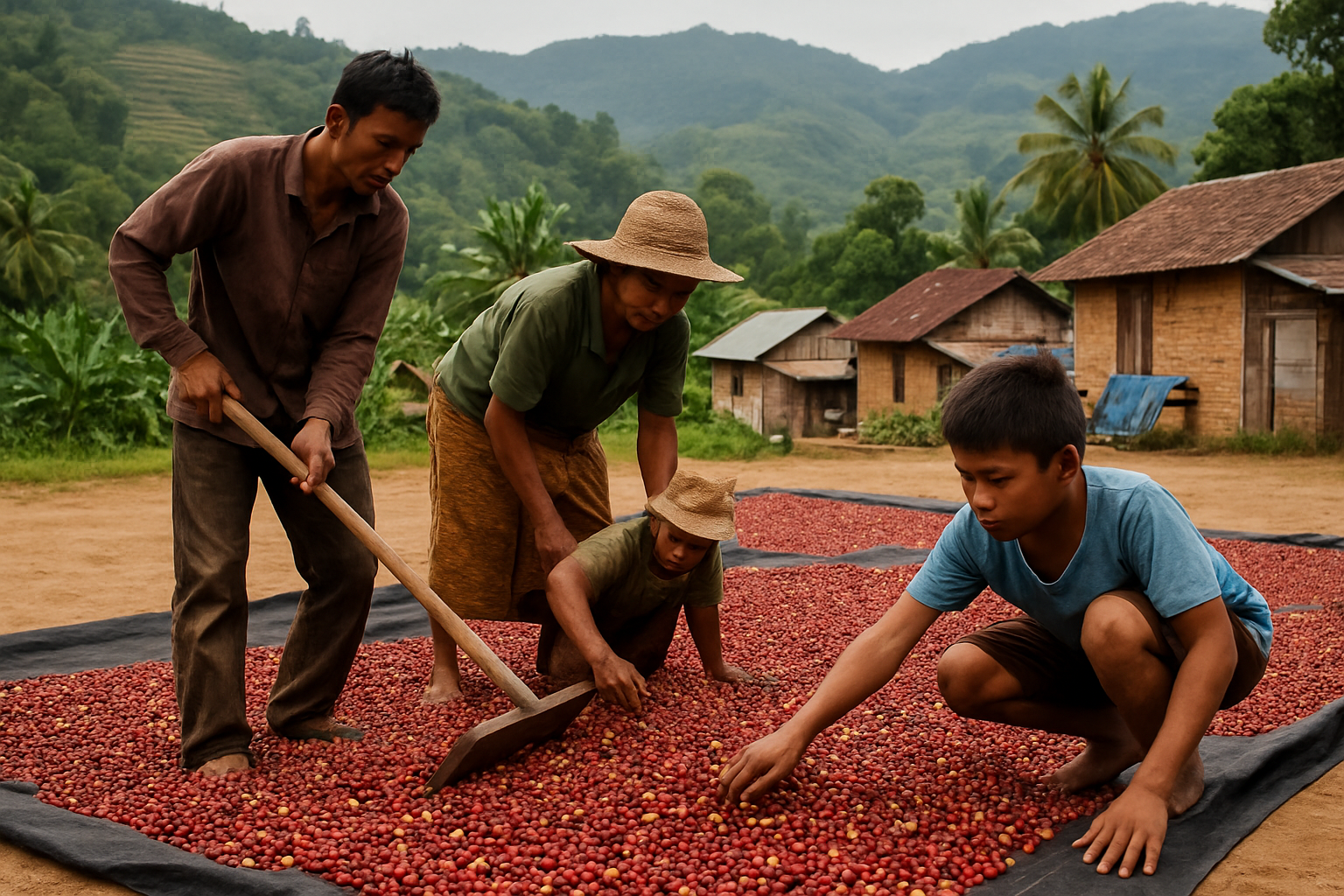If you’re a coffee drinker who cares about health, sustainability, or flavor, chances are you’ve seen bags labeled “organic” and wondered if they’re worth the extra cost.
The term “organic” has become increasingly common, but what does it actually mean in the coffee world? And how does it compare to conventionally grown coffee in terms of environmental impact, quality, and ethical sourcing?
In this article, we’ll explore the real differences between organic and conventional coffee, helping you make more informed choices at the coffee shop or grocery store.
What Is Organic Coffee?
Organic coffee is produced without the use of synthetic fertilizers, pesticides, herbicides, or genetically modified organisms (GMOs). The goal is to grow coffee in a way that supports natural ecosystems, soil health, and biodiversity.
To be officially labeled as organic, coffee must be certified by an authorized body, such as:
- USDA Organic (United States)
- EU Organic Certification (Europe)
- JAS Organic (Japan)
- IFOAM (International Federation of Organic Agriculture Movements)
These certifications require strict adherence to guidelines throughout the entire production process—from farming and harvesting to storage and shipping.
What Is Conventional Coffee?
Conventional coffee, on the other hand, is grown using industrial farming techniques. These typically include:
- Synthetic chemical fertilizers to increase yield
- Pesticides and herbicides to control weeds and pests
- Monoculture farming (planting one crop over large areas)
- Irrigation systems and soil amendments for faster production
These methods are designed for efficiency and scale, making conventional coffee the dominant form in global markets. However, they come with significant environmental and social costs.
Environmental Impact: A Clear Divide
Soil Health
- Organic: Enriches soil using compost, green manure, and natural minerals. Encourages biodiversity below ground by supporting microbial life.
- Conventional: Depletes soil over time through overuse of chemical inputs. Leads to erosion and loss of natural fertility.
Water Usage
- Organic: Often relies on rain-fed systems and uses mulching to retain moisture. Organic farms are also less likely to contaminate water sources.
- Conventional: Heavy irrigation and chemical runoff pollute rivers and groundwater, affecting nearby communities and wildlife.
Biodiversity
- Organic: Encourages intercropping and shade-growing methods that support birds, insects, and other wildlife.
- Conventional: Monocultures and deforestation destroy natural habitats and reduce species diversity.
Climate Change
- Organic: Uses practices like agroforestry and composting, which help sequester carbon and reduce emissions.
- Conventional: Often contributes to greenhouse gas emissions due to fertilizer production, deforestation, and long-distance shipping.
Health Considerations
While the roasting process neutralizes many harmful chemicals, residues from synthetic pesticides and fertilizers can remain in the green coffee beans. Organic coffee, by definition, avoids these risks.
Some consumers also report fewer negative side effects—like stomach discomfort—when drinking organic coffee, possibly due to the absence of chemical residues and the cleaner processing methods often used.
Organic coffee also tends to have higher antioxidant levels, especially when grown at high altitudes under shade. These compounds contribute not just to health, but also to flavor.
Taste and Quality: Is There a Difference?
Organic coffee is often associated with better taste, but that’s not guaranteed. Taste depends on several factors:
- Bean variety
- Altitude
- Processing method
- Roasting technique
- Freshness
That said, many organic farms are small-scale operations focused on quality over quantity. They handpick only the ripest cherries and use traditional processing methods, which can result in a more nuanced and flavorful cup.
Conventional coffee can also be excellent—especially if it’s from a reputable grower or specialty roaster. But large-scale production often prioritizes yield over complexity, leading to more generic flavor profiles.
Certification and Transparency
Organic coffee must meet rigorous certification standards. These systems are audited regularly and provide traceability from farm to shelf.
In contrast, conventional coffee lacks this level of transparency. It’s often impossible to know where the beans were grown, under what conditions, or whether the workers were treated fairly.
Some specialty conventional coffees do provide detailed sourcing information, but this is the exception, not the rule.
Economic and Ethical Factors
For Farmers
- Organic: Farmers avoid costly chemicals and may receive higher prices for certified beans. However, certification itself can be expensive and difficult to maintain.
- Conventional: Easier access to inputs and support programs, but often lower prices due to market saturation. Farmers are more vulnerable to price fluctuations.
Fair Trade and Organic Overlap
Many organic coffees are also Fair Trade certified, meaning farmers receive a minimum price and premium for community development. This combination addresses both environmental and social justice concerns.
However, not all organic coffee is fair trade, and not all fair trade coffee is organic. The best choice depends on what values matter most to you.
The Cost Factor
Organic coffee is usually more expensive, and with good reason:
- Higher labor costs due to hand weeding and manual pest control
- Lower yields per acre
- Certification and inspection fees
- Limited use of chemical boosters
But consider what you’re paying for:
- Healthier farming communities
- Cleaner soil and water
- Wildlife protection
- Higher-quality beans
In this sense, the real cost of conventional coffee is externalized—it’s paid by ecosystems, communities, and future generations.
How to Choose the Right Coffee for You
Here’s how to make informed choices when shopping:
- Read the label: Look for certified organic seals and check for other ethical certifications like Fair Trade or Rainforest Alliance.
- Research the brand: Visit their website to learn about sourcing, farmer relationships, and sustainability initiatives.
- Buy whole beans: Fresher and more flavorful—plus you can verify origin more easily.
- Ask questions: Don’t hesitate to ask your local café or roaster about their sourcing practices.
Ultimately, the best coffee is one that aligns with your values, supports responsible practices, and tastes great to you.
Final Thoughts: Beyond the Buzz
The choice between organic and conventional coffee is about more than just personal preference—it’s about environmental impact, ethical responsibility, and long-term sustainability.
Organic coffee offers a path toward cleaner farming, healthier communities, and richer biodiversity. While it may cost more upfront, the benefits reach far beyond your morning mug.
So the next time you reach for a bag of beans, consider what went into growing them. You might just find that a more conscious cup tastes better in every sense of the word.

